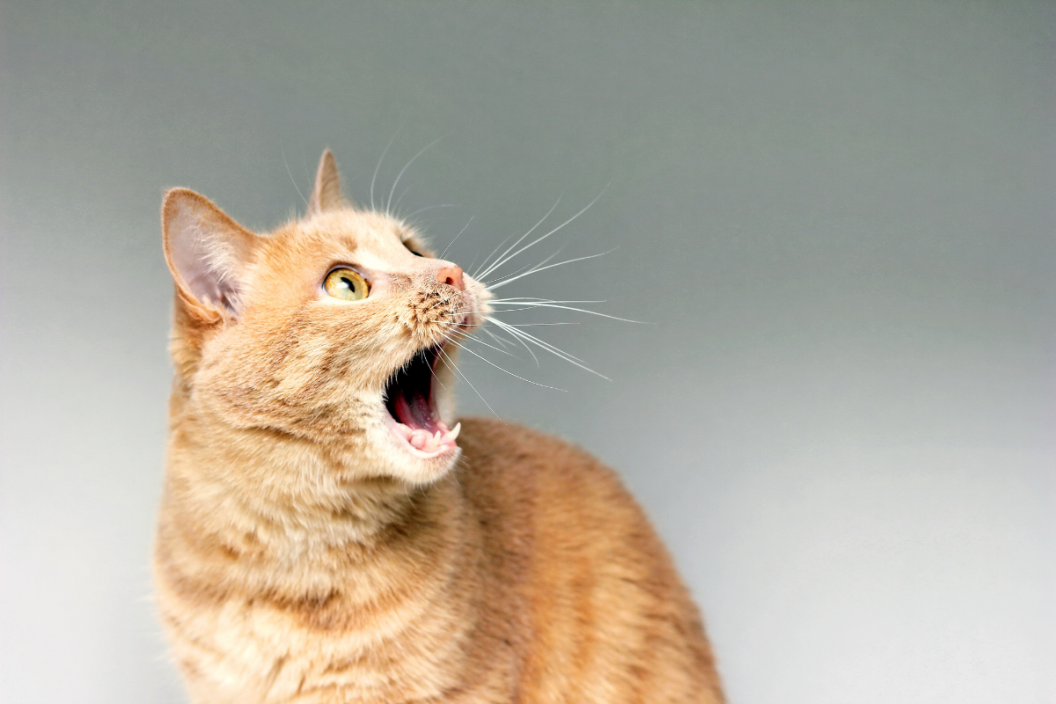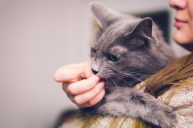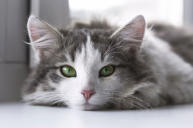Dogs aren't the only ones who howl, but why do cats do it?
Cats make a lot of noises, and deciphering cat sounds is one of the joys of owning a cat. But sometimes the noises they make aren't benign. If your cat's noises sound a little bit off, pay attention. Your feline friend might be trying to tell you something with their caterwauling.
There's might be a reason to be concerned when you hear what's called 'caterwauling'. If your cat's meow sounds persistent, melodramatic, and drawn out, you might be hearing caterwauling. Of course, every cat is different, but you should be intimate with your own feline's normal sounds. There is a such thing as a vocal cat, and many owners mistake normal vocalization for a problem. Still, if that vocalization increases or suddenly sounds different than usual, it's time to pay attention.
When the pitch gets higher, drawn-out, melodic and "yowly," it can indicate a problem. This type of sound is called caterwauling, and there's nearly always a reason behind this odd, angry cat noise.
What is Caterwauling?
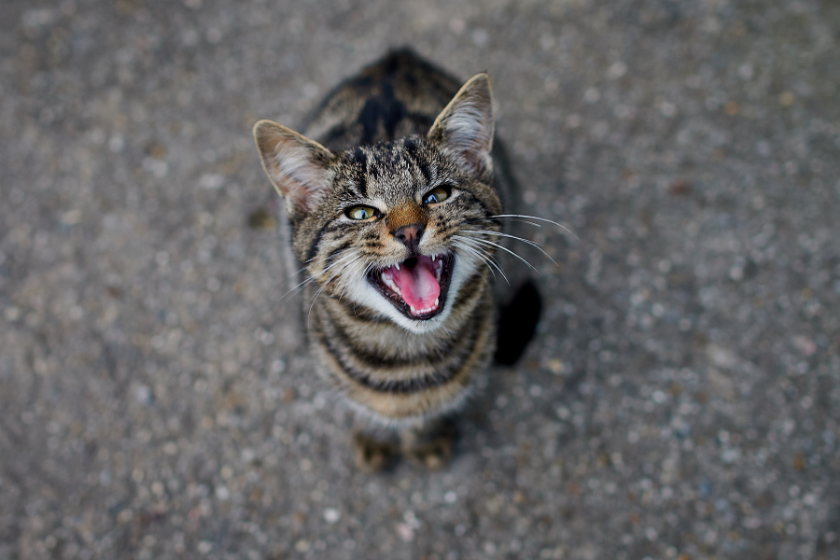
Caterwauling is basically the cat equivalent of a yell. Cats make these noises when there's something amiss and they're trying to get your attention. Cats communicate in this way for a myriad of reasons, ranging from basic needs to emotions. Some cats who caterwaul might be in pain, while others might be guarding their turf. Here are a few reasons your cat might be caterwauling.
Why Does My Cat Caterwaul?
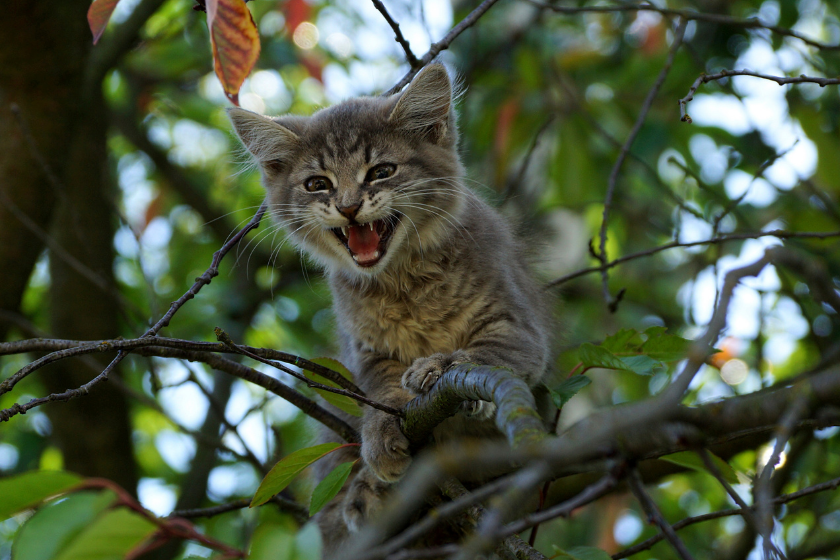
1. Physical Problems
Cats that are in pain will make noise. If their tummy hurts, they have arthritic joints, or they're injured, they vocalize. Cats with systemic medical problems like thyroid disease or kidney malfunction (often associated with high blood pressure) may howl, too. And you can hardly blame them! Even humans won't just sit quietly while in pain.
Visit the vet if you suspect your cat is in pain!
2. Hormonal Reasons
Your cat may be in heat! Cats in heat are usually responsible for the old adages about crazy cats, and the noises they make might wake up the entire neighborhood. Female cats in heat caterwaul to let available males in the area know that they're available. Males aren't immune to making strange noises and will usually respond in turn. Cats in heat are not fun to deal with, and as a result, it's always prudent to make sure you spay or neuter your animals when you adopt.
3. A Danger Warning
This won't surprise many cat owners. They may caterwaul if a stranger comes inside their yard, and even if the intruder stays outside, they may yowl. Expect some singing if your cat sees birds, squirrels, mail carriers, etc. through a window and considers them trespassers. If you leave your windows open and another cat walks by, your cat might start howling to try to protect their territory and alert you of a possible intruder. They might also be howling as a complaint because they can't go outside!
4. Anxiety
Stressed out cats may 'caterwaul'. They can become stressed if there is a major change in their environments like a family move or a family member leaving the house for a new job. If your cat is unhappy they'll let you know it, so you should talk to your vet if you feel the yowling and behavior is something that should be discussed with a medical exam. Moving is especially hard on cats, and many cats will howl nightly until a few weeks have gone by and they're settled into their new routine.
5. Attention
Is your cat trying to manipulate you? Just like puppy eyes at the dinner table, cats are masters at getting what they want from owners. Whether your cat is wanting food, attention, or playtime, cats will howl to make sure they get what they want, especially if you dance to their tune. Don't reward a howling cat with treats, or you might find that you've developed a new routine—whether you want it or not.
6. Cognitive Dysfunction
Don't ignore this! Do you have an old cat? You need to keep your old cat comfortable. Cats, much like people, lose cognitive function as they get older. They can develop a form of dementia where they forget what they're doing or where they're going. This can result in strange behaviors like pacing, caterwauling, and leaving the food bowl without eating. Cats might even experience confusion with the daytime-nighttime cycle and might howl at all hours of the day and night.
If their vision is bad, they might have problems navigating the house and will voice their displeasure much like a grumpy old person! Keep your old cat as comfy as possible and cut down on caterwauling.
All this said, caterwauling might be something your cat just does for attention or to voice their concerns. Some cats will even howl after being fed. While not all cat noises are normal, you know your feline best and should be able to tell what is normal for your cat or not. When something doesn't seem right, pay attention and see a vet. It just might save your cat's life.
Are you lucky enough to live with a cat that howls? Tell us on the Wide Open Pets Facebook page!
This article was originally published October 13, 2021.
